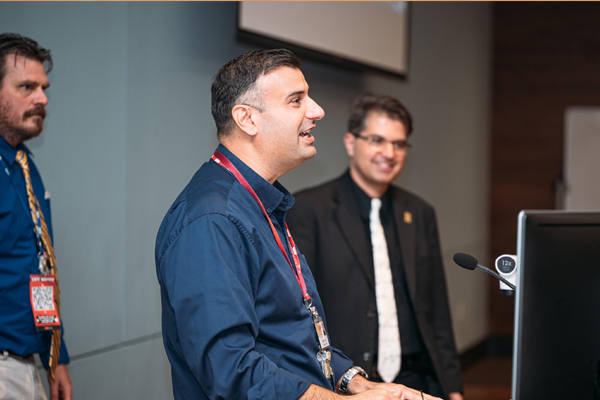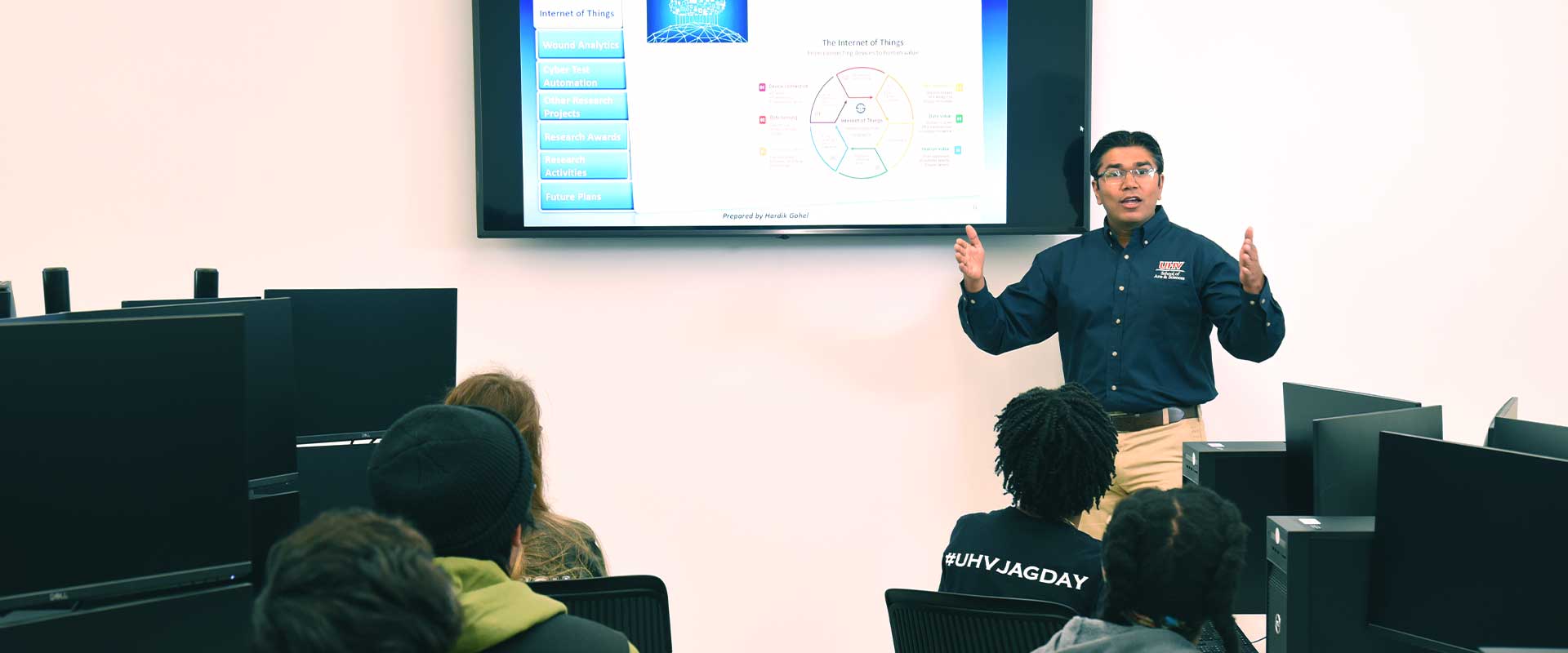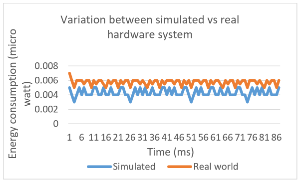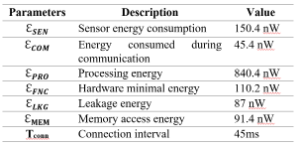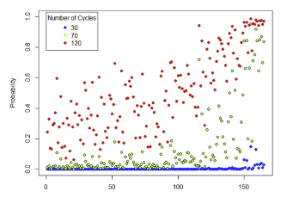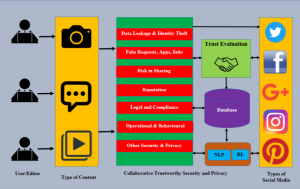Applied Artificial Intelligence
Dr. Hardik A. Gohel is the founding director of the Applied Artificial Intelligence (AAI) laboratory at University of Houston-Victoria (UHV). He is also a principal investigator in a multiyear funded project from the Department of Defense (DoD) and the Department of Energy (DoE). His areas of research are Artificial Intelligence, Digital Healthcare, Cybersecurity, and Advanced Computing.

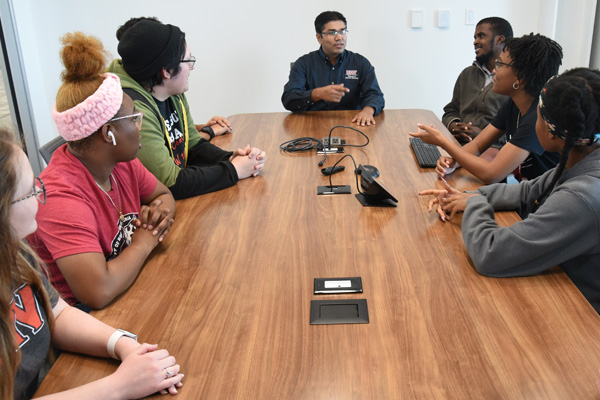
Publications
Journal Papers
- M. Mujawar, H. Gohel, S.K.Bhardwaj, S. Srinivasan, N. Hickman, A. Kaushik, "Nano-enabled biosensing systems for intelligent healthcare: towards COVID-19 management", Elsevier Journal of materialstoday CHEMISTRY, doi.org/10.1016/j.mtchem.2020.100306
- H. Gohel, H. Upadhyay, L. Lagos, K. Cooper, A. Sanzetenea, "Predictive Maintenance Architecture Development for Nuclear Infrastructure using Machine Learning", Elsevier Journal of Nuclear Engineering and Technology, doi.org/10.1016/j.net.2019.12.029
- S. Bhardwaj, H. Gohel and S. Namuduri, "A Multiple Input Deep Neural Network Architecture for Solution of One-Dimensional Poisson Equation," in IEEE Antennas and Wireless Propagation Letters. doi: 10.1109/LAWP.2019.2933181
- H. Upadhyay, H. Gohel, A. Pons, L. Lagos, “Virtual Memory Introspection Framework for Cyber Threat Detection in Virtual Environment”, Advances in Science, Technology and Engineering Systems Journal Vol. 3, No. 1, 25-29, 2018
- H. Gohel, B.K. Garsondiya, A. Kothia, H. Jani, "Operational Study of Brain Reading–Neuroimaging in Human Brain Computer Interface(H-BCI)", American Research Journals, Vol. 2, Issue 6, pp. 1-6, 2017
Conference Papers
- H. Gohel, H. Upadhyay, L. Lagos, “Collaborative Trustworthy Security and Privacy Framework for Social Media” The Network and Distributed System Security Symposium (NDSS), 2019
- H. Upadhyay, H. Gohel, A. Pons and L. Lagos, "Windows Virtualization Architecture For Cyber Threats Detection," IEEE Conference on Data Intelligence and Security, 2018, pp. 119-122. doi: 10.1109/ICDIS.2018.00025
- D. Levy, H. Gohel, H. Upadhyay, A. Pons and L. E. Lagos, "Design of Virtualization Framework to Detect Cyber Threats in Linux Environment," IEEE Conference on Cyber Security and Cloud Computing, 2017, pp. 316-320. doi: 10.1109/CSCloud.2017.18
- H. Gohel, P. Sharma. Intelligent Web Security Testing with Threat Assessment and Client Server Penetration. Springer Advances in Intelligent Systems and Computing, 2016, pp. 555-567 doi:10.1007/978-981-10-0135-2_54
Books
- M. Anouncia, H. Gohel, S. Vairamuthu, "Data Visualization - Trends and Challenges Toward Multidisciplinary Perception", ISBN 978-981-15-2282-6, Springer Publications Inc.,2020
- H. Gohel "Human Brain Computer Interface (H-BCI)", ISBN 978-3-659-77990-9 Lambert Academic Publishing, 2015
Book chapter
- H. Gohel, H. Upadhyay, "Developing Security Intelligence in Big Data" Knowledge Computing and Its Applications. Springer Publications, 2018, pp. 25-50, doi: 10.1007/978-981-10-6680-1_2
Magazine Articles
- H. Gohel, H. Upadhyay, “Cyber Threat Analysis with Memory Forensics”, CSIC Communications – Knowledge Digest for IT Community, Vol 40, Issue 11, pp. 17-19, 2017
- H. Gohel, H. Upadhyay, “Developing Solutions with Big Data Technology”, CSIC Communications – Knowledge Digest for IT Community, Vol 41, Issue 2, pp. 18-21, 2017
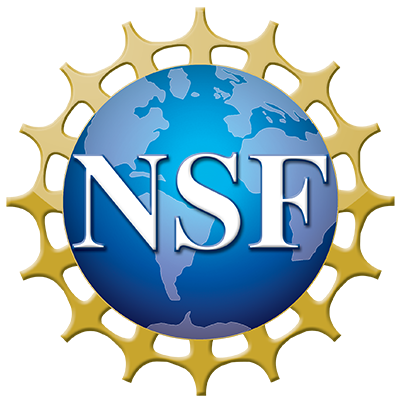
Research Projects
AI System for IoT Devices Energy Management
This research presents an artificial intelligence based the energy management system for IoT devices which reduce the overall energy consumption by intelligently activating and deactivating the IoT devices while also managing the quality of service parameters. Both hardware and software aspects are considered for devising the efficient energy conservation models for IoT. Energy transparency has been achieved by modelling energy consumed during sensing, processing, memory access and communication. A multi-agent system has been introduced to model the IoT devices and their energy consumptions. Genetic algorithm is used to optimize the parameters of the multi-agent system. Finally, simulation tools such as MATLAB Simulink and OpenModelica are used to test the system. The results shows an 18.65% decrease in overall energy consumption by the implementation of decentralized intelligence of the multi-agent system for IoT.
Nuclear Predictive Maintenance with Machine Learning
Nuclear infrastructure systems play an important role in national security. The functions and missions of nuclear infrastructure systems are vital to government, businesses, society and citizen's lives. It is crucial to design nuclear infrastructure for scalability, reliability and robustness. To do this, we can use machine learning, which is a state of the art technology used in various fields ranging from voice recognition, Internet of Things (IoT) device management and autonomous vehicles. In this research, we propose to design and develop a machine learning algorithm to perform predictive maintenance of nuclear infrastructure. Support vector machine and logistic regression algorithms will be used to perform the prediction.
Predicting Nuclear Machine Failure using Logistic Regression
Security and Privacy Framework for Social Media
Social media technology provides a novel platform for faster, dynamic, manageable, cost-effective and adaptable professional network service provisioning. As such, social media is ideal for online outreach and getting traction with individuals, government organizations and business enterprises. However, as social media technology continues to provide an increasing number of functionalities to expand a social network, there is a growing need to design, develop and evaluate the security and privacy of personal and professional social media services. The proposed collaborative trustworthy security and privacy framework for social media provides a new avenue to develop improved security and privacy that can both verify and validate social media content before being made available online. It also monitors, assesses and reacts when online security and privacy is compromised.

Research Servers
Laboratory
The NVIDIA® qualification guarantees the system's CPU, Tesla T4 and overall system performance under wide-temperature conditions is above par by putting the system through stringent tests and ensures its features can be seamlessly integrated with the NVIDIA® Tesla T4. UHV’s AI servers proved itself worthy of our applied research solutions to amplify AI inference performances when we choose Tesla GPU qualified platforms.
As an NVIDIA® Tesla qualified GPU computing platform, PowerEdge T640 is one of the most compact systems. It is a unique industrial-grade edge AI platform supporting dual NVIDIA® Tesla T640 GPU cards. The system allows innovators to run multiple models simultaneously such as engaging advanced applications with false-fail and redundant GPU configurations or assign the two T640s to separate tasks, set one for video transcoding while setting the other for AI inference tasks. It supports 2 Intel Xeon Silver 4214 2.2Ghz 12 core CPUs with expansion capabilities. It also features compact dimensions and low power consumption characteristics. With T640 boosted AI inference processing power, it is ideal for medical image and video analysis, deep learning machine vision, autonomous machines and more.
UHV has two PowerEdge T640 with GPU system with following configuration:
CPU: 2 Intel Xeon Silver 4214 2.2Ghz 12 core CPUs
RAM: 512 GB 3200MT RDIMM memory
STORAGE: 16 2TB 7.2KRPM 2.5” SATA Hard Drives (32TB total storage, around 28TB of usable space depending on RAID configuration)
OS DRIVE: BOSS Control Card with 240GB M.2 SSD
NETWORK: Dual port onboard 10Gb ethernet ports, second card with dual 10Gb SFP+ ports
GPU: Nvidia Tesla V100S 32GB GPU card
We have Windows Server 2022 Datacenter in both of them, with SQL server 2019 with machine learning services to perform in- memory analytics. It’s for faster AI computing and parallel processing.
Teaching Activities
Graduate Courses
- COSC 6405 : Programming for Data Science
- COSC 6315 : Data Science using Machine Learning
- COSC 6312 : Fundamentals of Cybersecurity
- COSC 6339 : Network Design Management
Undergraduate Courses
- COSC 4300 : Digital Forensics
- COSC 4339 : Telecommunication and Networks

